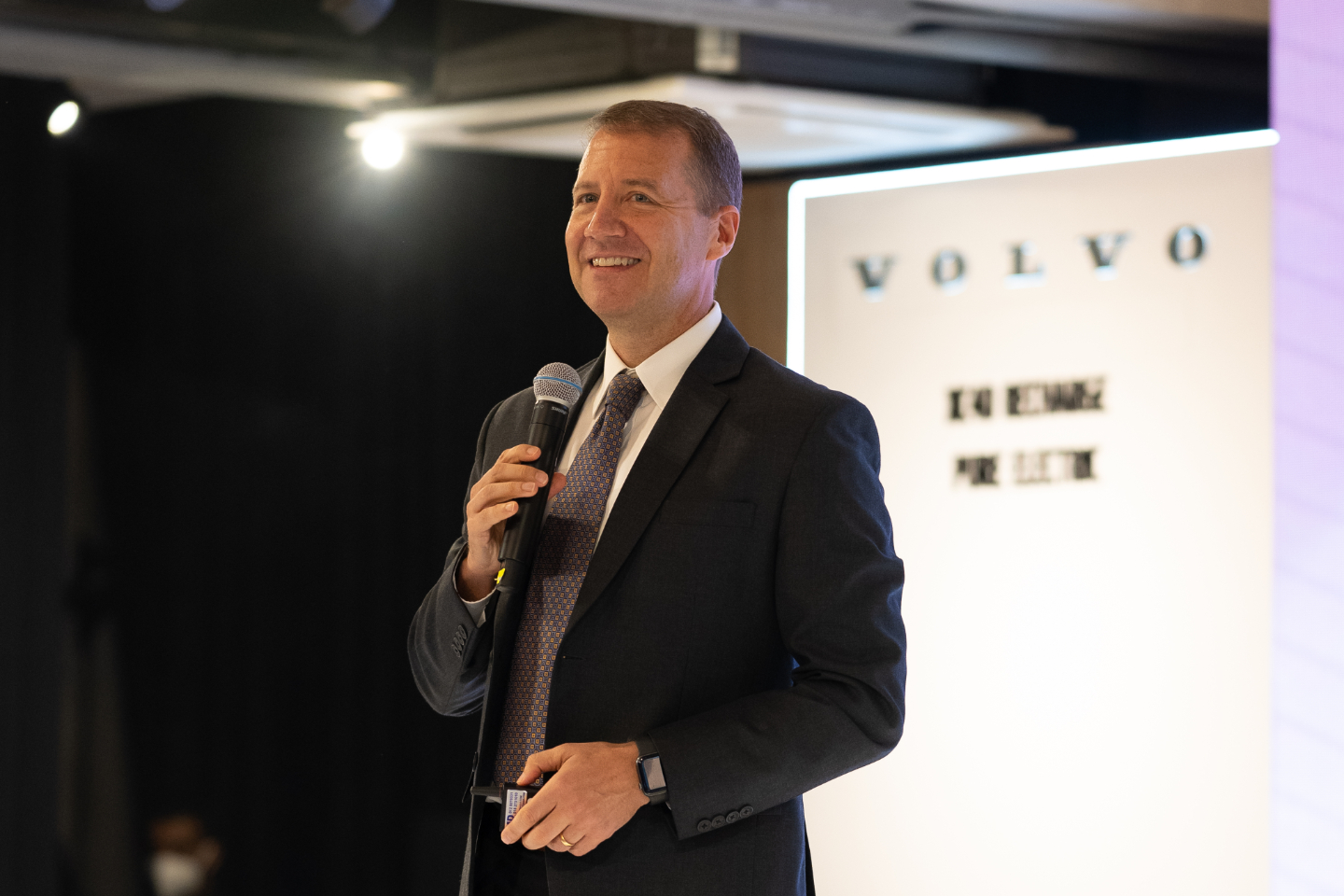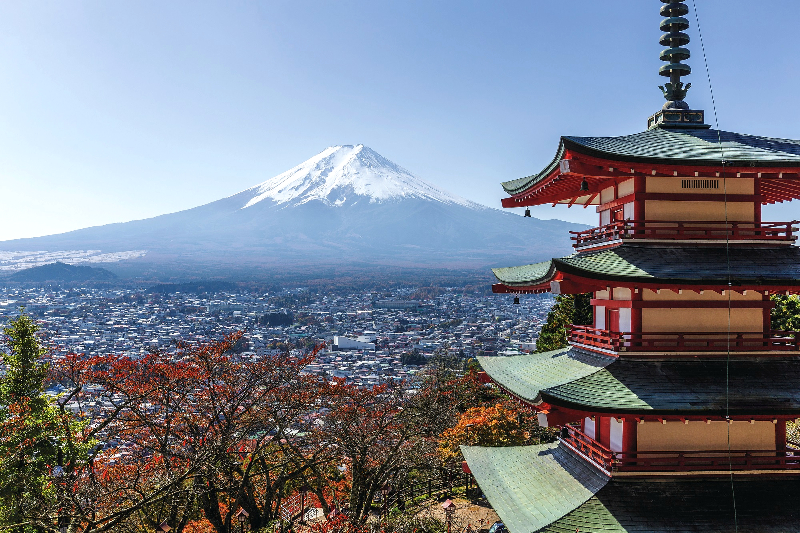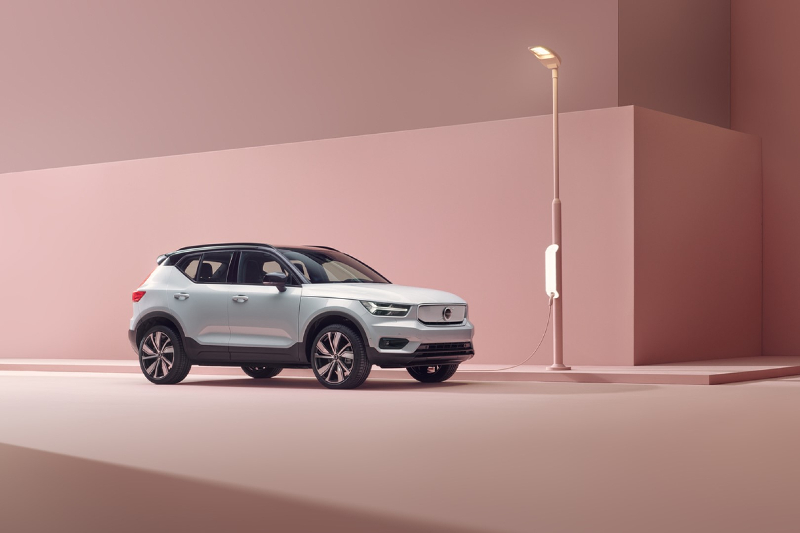
After stints in India, Sweden, China and Japan, Frump now takes root in Malaysia (Photo: Volvo Malaysia)
The managing director of Volvo Car Malaysia talks about the company’s culture, exploring new places, connecting with people and the little things that make him feel at home wherever he goes.
Options: You were an exchange student to Japan, then the UK while in college. Was that led by curiosity and an interest in people and places?
Charles Frump: I grew up in a really rural area in Minnesota, the US. In that sense, it was quite isolated and homogenous. As I started exploring places, I wanted more opportunities to see the world, meet more people and go to new places. That’s always been in me, just to explore. College, university as well as my job have been a vehicle for that.
You joined Volvo Malaysia last August from India, before which you worked in Sweden, China and Japan. Tell us more about this arc of experiences.
There’s something really special about coming to Malaysia because it brings together so much for me. I spent five years in China, five in India, and had worked in Europe. My wife is Japanese. There’s a big Japanese community here and Naomi can buy anything she needs. I can get my dhal curry from the Indian restaurants and outstanding dim sum from the Chinese restaurants. There’s Western food. It’s been such a crossroads for me; I don’t think I’ve ever felt so comfortable in a new job. There are still opportunities for me to learn around the Malay culture and room for exploration.
81303597_xl.jpg

What is the first thing you do to settle into a new workplace?
I have a one-on-one meeting with everyone in my team and I always ask them the same things: “What’s working? What is not? What advice do you have for me?” Meeting with each individual builds some rapport and people feel more valued, that we are approachable. It’s the beginning of trust. I never go into a new job with a plan. The plan should come from the situation. I need to understand what the issues are and am open to hearing everyone [out]. I always boldly go in and do a lot of listening.
What makes a house a home for you?
Naomi and I have moved 16 times together and where she is is home. But when we talk about possessions or a feeling of home, there are a few little things — maybe the result of my movements, but also a strong influence from Japan and Sweden. I have minimalist taste and very few possessions. I don’t have a car, a house, any jewellery. In Japanese society, almost every day you eat rice and miso soup. I’ve been using the same rice bowl I bought in Japan for 20 years. I have a very nice set of chopsticks that I always use. There’s something in the tactile experience of having those things that are familiar to me that make me feel I am home — as long as my wife is sitting across from me.
Volvo Cars plans to sell only electric vehicles by 2030. How are you driving the company’s vision here?
We are committed to being a fully electric car brand and are building the infrastructure for that. We are bringing two electric vehicles to Malaysia this year and will bring in a new one every year from 2023. That builds up the fleet. We’re the only company so far that’s assembling electric vehicles here and can get the volume we need to be leaders in this area. We have the global cycle plan behind us and the local plan to make it happen.
I now drive a plug-in hybrid and will soon be changing to a fully electric car. Even now, with only a 40km-to-50km range on the road, I’m driving 95% of the time on pure electric. Bringing electrification into my daily life is just that small change for me. It doesn’t take a lot of big changes to be more sustainable.
volvo-xc40-recharge-3.jpg

Now that borders have opened up, where will you be travelling to?
We came here last July and, with the MCO, it was challenging. We wanted to get to know the country first and visited Kota Kinabalu, Penang and Melaka. When borders opened, our first priority was family: We went home to see Naomi’s parents in Japan in mid-April and returned to Kuala Lumpur on May 8 after a wonderful trip.
I was a schoolteacher before entering the corporate world and lived north of Tokyo. That was where Naomi and I met — she was my Japanese teacher. It feels like going home every time I go back to Japan. I have lots of friends there; my ice hockey team is there. I still play ice hockey here, at least twice weekly. I’ve also hired a personal trainer and am doing a lot of strength training.
Whenever you travel, what do you look forward to?
For me, it has always been food. The things that really register in people’s minds are the tastes as well the city and place. I am excited to go to a yakitori place in Japan. In Sweden, it’s where you can have out-of-this-world salmon. In India, it’s dhal and naan. In China, it could be a dim sum place.
Marketing and sales are tough jobs. What has kept you in this business?
Volvo’s corporate culture is non-hierarchical, kind and accepting. Its collaborative style — the leader’s job is to support staff in their own ambitions — fits my personality. Not to mention the fact that the company has let me travel the world. Relationships are important to me; I like to collaborate with and talk to people. I want to be a person who demonstrates the company’s values. It does things a little differently and I hope this goes out to our dealerships and customers and they recognise it. We care about people’s safety and we have this vision to be climate neutral by 2040. Working for an automaker, there is always this thought in the back of your mind that you are doing some damage. Now, hopefully, we can be part of the solution.
This article first appeared on May 23, 2022 in The Edge Malaysia.


